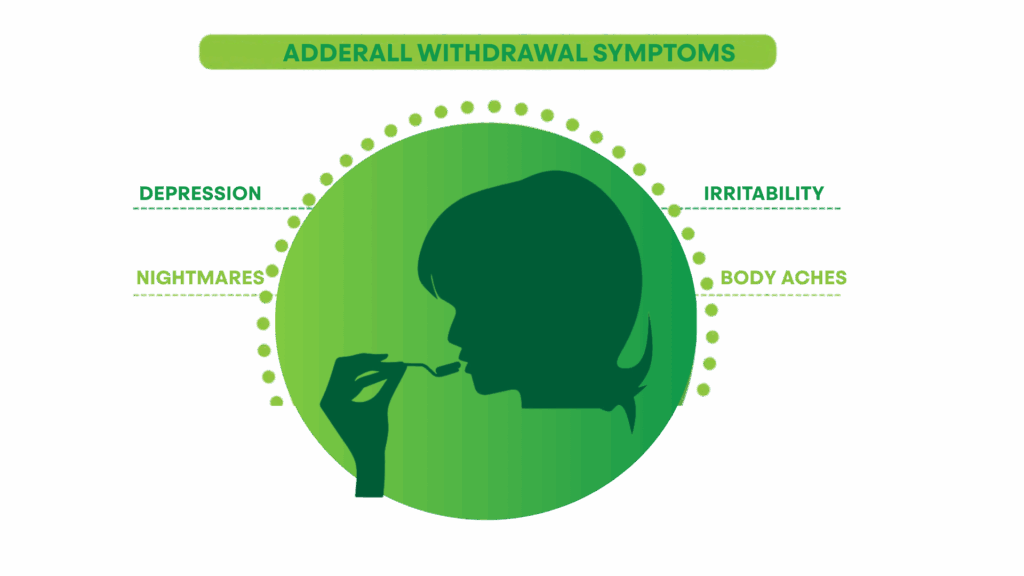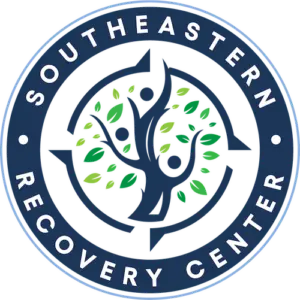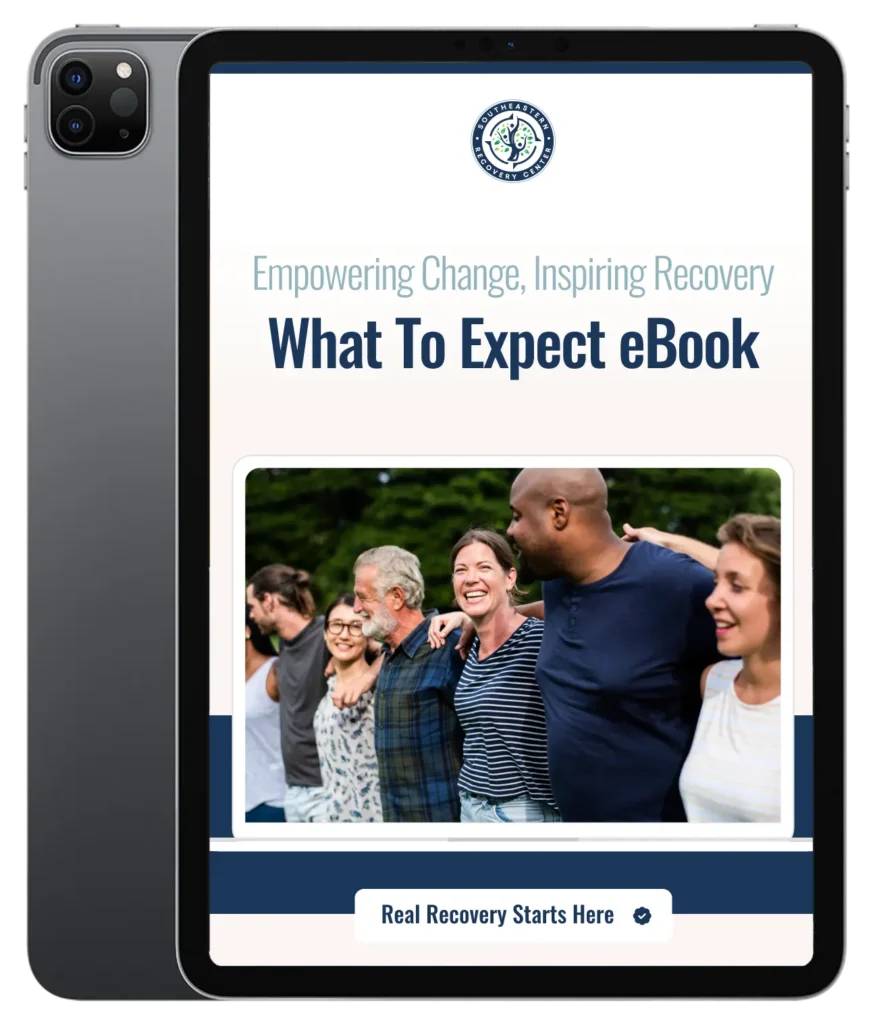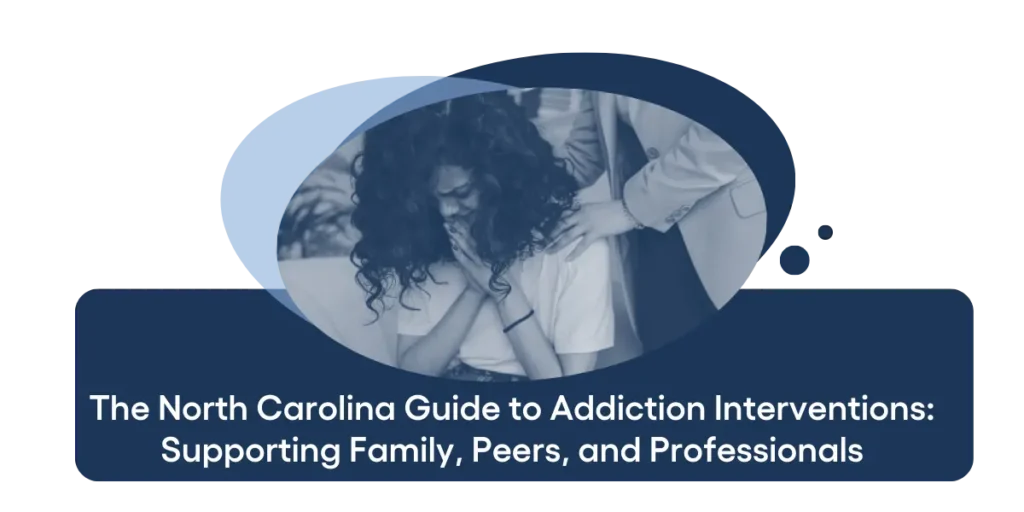While developing an addiction to Adderall can happen quicker than one would expect, detoxing from it is a more complicated process.
According to the 2024 National Survey on Drug Use and Health, 3.9 million people misused prescription stimulants such as Adderall. Research has also shown that Adderall misuse is driven primarily by 18-to-25-year-olds that take it improperly. This misuse means taking Adderall without a prescription, likely sourced from family and friends, without physician input. As Adderall increases in popularity, there are more opportunities for individuals to misuse it and develop either a dependence on it, or a full-blown addiction.
We’ve created this guide for individuals or their loved ones to understand just how to deal with Adderall addiction. This post covers everything you need to know about detoxing from Adderall, including causes, symptoms, treatment options, and what the average timeline to detox from Adderall might look like.
What is an Adderall Addiction?
An Adderall addiction is when an individual develops a compulsive craving to use Adderall. Adderall impacts your central nervous system (CNS), boosting mood, attention, and energy. Because of this, it’s typically used to treat Attention-deficit/hyperactivity disorder (ADHD) and narcolepsy. However, Adderall is both widely available and potent, creating opportunities for individuals to misuse it until they become dependent on or addicted to it.
Individuals who take Adderall without carefully considered dosages from a physician are more at risk of becoming addicted.
What Causes Someone to get Addicted to Adderall?
There are several factors that lead to someone becoming more likely to be addicted to Adderall:
1. Improper Dosage
When people take Adderall at a frequency and quantity that isn’t physician-approved, they open themselves up to grow dependent on the effect of the drug.
2. Chemical Composition
Adderall is a stimulant for the central nervous system that has two powerful ingredients: Amphetamine and Dextroamphetamine. These ingredients have high potential for abuse, meaning they’re more likely to be misused – resulting in dependence or addiction. Dr. Zishan Khan, a psychiatrist at Mindpath Health, describes Adderall in relation to meth: “You can think of both of them chemically as cousins.”
3. Drug Benefits
Adderall has a reputation for boosting attention and productivity as well as helping with wakefulness. A person can grow dependent on the drug for these positive impacts. Additionally, over time an individual’s brain can develop a tolerance on having the drug present in their nervous system. This means an alteration in brain chemistry as it grows to expect a steady level of Adderall in the body.
All these factors together make it easy for someone to abuse or get addicted to Adderall if they aren’t taking it with proper guidance and consideration. That said, studies have shown that long-term usage of Adderall is safe and effective when used as intended.
How Many Types of Adderall are there?
There are two types of Adderall: Adderall XR and Adderall IR.
- Adderall XR stands for Adderall extended-release. Adderall XR gradually delivers the medication to your system over 10-12 hours. As such, it’s used for steady symptom control over an extended period of time.
- Adderall IR stands for Adderall immediate-release, and is generally regarded as the “regular” version of Adderall. Adderall IR immediately acts to address symptoms of lethargy, inattention, and hyperactivity, but it can require multiple doses throughout the day.
Is Adderall XR More Addictive than Adderall IR?
Both types of Adderall have high potential to become addictive, but for different reasons. Adderall XR can cause a gradual dependence to build up in individuals due to daily use. Meanwhile, Adderall IR’s immediate, potent impact can cause a person to chase the sensation of being under the effect of the drug.
Symptoms of Adderall Addiction
There are a few worrisome signs that point to someone having developed a dependency or addiction to alcohol. On a psychological level, these include:
- Inability to cease using Adderall, particularly after multiple attempts
- Using Adderall in larger doses or more frequently than intended
- Raised tolerance to Adderall, requiring higher dosages outside of a physician’s recommendations
- Craving Adderall and its effects
- Using Adderall even in scenarios where it is dangerous to consume it
This list is informed by the DSM-5’s criteria for labeling addiction and determining when someone has a substance use disorder.
There are also some physical symptoms of Adderall addiction that can develop in certain cases. These include:
- Chest pain
- Paranoia or mania
- Headaches
- Dry mouth
- Racing heart
- Increased anxiety
- Difficulty falling asleep or staying asleep
- Shortness of breath
How Common are Adderall Overdoses?
While statistics on Adderall in particular are not tracked, a report released in 2025 noted that between January 2021 and June 2024, 59% of all overdose deaths involved stimulants such as Adderall. Adderall’s chemical composition and impact on focus and emotions mean that improper usage has a high chance of causing an addiction to develop. This is why it’s so important for Adderall usage to be guided by medical professionals.
Treatment Options for Adderall Addiction
There are several different treatment options available to help an individual detox from their Adderall addiction. There is no perfect solution that will work for everyone, which is why medical guidance is crucial to discuss your options. Adderall addiction treatment options include:
- Cognitive Behavioral Therapy
- Group Therapy
- Individual Therapy
- Motivational Interviewing
- Psychotherapy
Treatment programs can be designed with either inpatient rehab or outpatient rehab in mind. With inpatient rehab, individuals will stay at a treatment facility to receive care. This controlled environment allows them to receive 24-hour care without temptation. Meanwhile, outpatient care is more flexible, allowing individuals to check-in, speak to a medical professional, discuss treatment, then return to their daily lives.
Inpatient care and outpatient care both have their strengths, but neither is inherently superior compared to the other. It all depends on what an individual needs in terms of support and resources to kick their Adderall addiction. This is especially important when considering that Adderall dependency and Adderall addiction are known to come with withdrawal symptoms.
Additionally, detoxing from Adderall may involve either quitting cold-turkey or tapering off. Cold-turkey quitting means immediately ceasing all Adderall intake. Meanwhile, tapering your Adderall intake, or weaning off it, means slowly reducing your intake over time. Medical professionals will help guide an individual towards the detox option that will likely work best for them.
Before Detoxing from Adderall
An Adderall detox is not something an individual should rush into without proper preparation. This means preparing yourself mentally and physically, ensuring your environment is conducive to an Adderall detox, and consulting with medical professionals. Otherwise, it’s possible that an individual could detox, only to find themselves relapsing back into Adderall abuse once again.
Furthermore, anyone preparing to detox from Adderall should prepare themselves to experience an Adderall crash and/or Adderall withdrawal.
Adderall Crash vs Adderall Withdrawal
There are two distinct negative effects associated with stopping Adderall when a person has developed a dependence or addiction to Adderall.
The first is known as an Adderall crash. Ceasing Adderall usage is known to produce a strong immediate reaction in those who have developed a dependency or addiction. This initial reaction, also known as an “Adderall crash,” has symptoms such as:
- Fatigue
- Increased Agitation
- Insomnia
- Anxiety
- Difficulty concentrating
The duration of the symptoms of an Adderall crash will vary depending on the individual, lasting anywhere from a few hours to a day or so.
The second negative effect associated with stopping Adderall is Adderall withdrawal. This tends to last much longer than an Adderall crash, and has its own set of symptoms along with an expected timeline.
Adderall Withdrawal Symptoms

Extended Adderall usage can cause your brain and body to get used to having the drug present in your system. This means that a detox from Adderall will result in withdrawal symptoms as your body has to adjust to once again operating regularly without the drug. Adderall withdrawal symptoms include:
- Depression
- Irritability
- Nightmares
- Increased appetite
- Suicide ideation
- Bodily aches
It’s also important to consider that the type of Adderall you’re taking can have an impact on any withdrawal symptoms you experience. People taking regular Adderall AKA Adderall IR (immediate-release) are known to feel withdrawal symptoms sooner than those using Adderall XR (extended release). On the flip side, those taking Adderall XR are known to experience withdrawal symptoms for longer.
Adderall Detox Timeline
Below is the timeline an individual can expect for certain withdrawal symptoms and their potency as they detox from Adderall.
First Stage (6 – 36 hours after last dose of Adderall)
- The initial Adderall “crash”
- Onset of fatigue
- Higher hunger levels
- Adderall cravings
- Increased irritability
Second Stage (3 – 5 days after last dose of Adderall)
- Withdrawal symptoms increase, along with the onset of:
- Depression
- Headaches
- Nightmares
Third Stage (5 – 7 days after last dose of Adderall)
- Withdrawal symptoms begin to decrease
- Mood and energy increase
- Adderall craving make persist
Fourth Stage (3-5 weeks after last dose of Adderall)
- Most symptoms will have subsided
- In some cases, individuals may experience lingering issues such as fatigue and lack of energy.
Those with higher tolerance for Adderall may find themselves with withdrawal symptoms longer than normal. Medical guidance can help, but even in these cases individuals report the symptoms finally fading a few months down the line.
Detox from Adderall With the Help of Professionals
Recovering from Adderall addiction can be a complicated process, but no one has to go through it alone. At Southeastern Recovery Center, our medical professionals use a variety of techniques from group therapy to breathwork to find the best treatment option for you or your loved one.
Our treatment plans follow the full continuum of care, ensuring that our patients are equipped for long-term success after an Adderall detox. Contact us to learn more.
FAQs about Detoxing from Adderall
What’s the difference between an Adderall addiction versus an Adderall dependence?
The difference between an Adderall addiction and an Adderall dependence is the level of psychological and physiological attachment an individual has to the drug. A dependence means an individual’s body adapting to the presence of Adderall, causing withdrawal symptoms when they cease using it. Meanwhile, an Adderall addiction is someone being outright unable to quit taking the drug. Someone who has an addiction to Adderall may also have a dependence on it, depending on the duration and frequency they’ve been taking the drug. But having a dependence on Adderall does not necessarily mean an individual is addicted to it.
How can I avoid experiencing an Adderall crash?
You can avoid experiencing an Adderall crash by following medical professional advice and tapering off the drug, though success will vary from person to person. Limiting other stimulants (such as caffeine and nicotine), getting better sleep, and staying hydrated can also help ensure your brain and body are in good-enough shape to mitigate the effects of an Adderall crash.
Is inpatient care or outpatient care better to complete an Adderall detox?
Whether inpatient care or outpatient care is better for an Adderall detox depends on your specific circumstances. Inpatient care makes sense if your environment is not conducive to a proper detox. If your environment is stable and healthy, outpatient care can be just as effective at curing Adderall addiction.
How long will Adderall withdrawal symptoms last?
The duration of Adderall withdrawal symptoms varies from person to person, with some individuals experiencing symptoms for just a few days. Meanwhile, other individuals may experience them for weeks or even months. What’s most important is ensuring a recovering Adderall addict has the proper support system in place to deal with withdrawal symptoms regardless of how long they persist.





